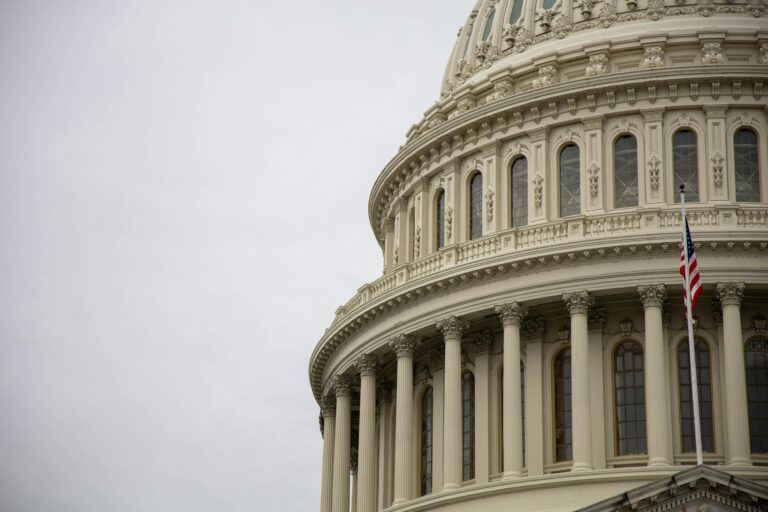
As the calendar flips to January 1, 2025, the world isn’t just celebrating a new year—it’s bracing for a slew of policy changes set to impact everyday lives, the economy, and the global political landscape. This year brings significant shifts on several fronts, from economic regulations and healthcare reform to climate action and technological oversight. Let’s take a closer look at some of the major policy changes expected in 2025, the factors driving them, and how they may shape political discourse and the daily lives of citizens in the year ahead.
- Economic Policies and Inflation Control
Key Focus: Combatting Inflation
One of the most pressing issues facing governments in 2025 is the ongoing battle against inflation. Over the past two years, high inflation rates have driven up costs for essential goods, housing, and energy, leaving many households struggling to keep up. In response, central banks around the world, including the Federal Reserve in the United States and the European Central Bank, are implementing stricter monetary policies, including interest rate hikes.
Expected Policy Impact:
Governments in the U.S. and Europe are introducing fiscal measures to curb inflation and stabilize prices, particularly for energy and housing. While this may mean higher interest rates in the short term, policymakers are also focusing on investing in affordable housing and renewable energy sources to mitigate long-term inflationary pressures. These efforts may reduce inflation but also make borrowing more expensive, impacting homeowners and businesses alike.
Political Impact:
High inflation often leads to increased political polarization, and 2025 may see a divide between those who support more interventionist policies to combat inflation and those who push for free-market solutions. Expect intense debates within Congress and other legislative bodies, with policymakers scrambling to strike a balance between stabilizing the economy and promoting growth.
- Healthcare Reform and Prescription Drug Prices
Key Focus: Affordable Healthcare
In the United States, healthcare reform has been an ongoing issue, and 2025 promises significant changes, especially regarding prescription drug prices. This year, provisions under the Inflation Reduction Act will allow Medicare to negotiate prices directly with pharmaceutical companies for the first time. This change is expected to bring down the costs of medications for seniors, a move supported by both advocates for affordable healthcare and voters facing high out-of-pocket costs.
Expected Policy Impact:
Millions of Americans could see relief in their medical bills as drug prices for some of the most commonly used medications fall. The negotiation power of Medicare could also set a precedent for further government intervention in healthcare pricing, pushing private insurers to reduce costs as well.
Political Impact:
While proponents argue that these reforms will lead to fairer prices and greater access to medication, the pharmaceutical industry is lobbying hard against the change, warning of potential impacts on innovation and drug availability. As the 2025 election cycle heats up, this healthcare reform will likely be a key issue, with candidates across the political spectrum weighing in on the benefits and risks of government negotiation on drug prices.
- Climate Action and Environmental Policies
Key Focus: Renewable Energy and Carbon Emission Reductions
In 2025, climate policy is poised to be one of the most transformative areas of change. With extreme weather events and global temperatures reaching record highs, governments worldwide are under increased pressure to take action. New regulations are expected to increase investment in renewable energy, restrict carbon emissions, and incentivize green infrastructure.
Expected Policy Impact:
New climate initiatives are likely to accelerate the transition to renewable energy sources, with subsidies and tax credits for businesses and households that adopt solar, wind, and other green technologies. Industries with high carbon footprints, such as manufacturing and transportation, will face stricter emission standards, which may drive up costs in the short term but aim to achieve long-term sustainability.
Political Impact:
While climate action enjoys broad public support, it remains a divisive issue politically. On one side, proponents argue that aggressive climate policies are necessary to prevent environmental catastrophe, while opponents worry about economic impacts, especially on fossil fuel-dependent regions. As the year progresses, expect debates about balancing environmental goals with economic growth to dominate headlines and influence voter preferences in upcoming elections.
- Technology and Data Privacy Regulations
Key Focus: Tech Oversight and Consumer Data Protection
With the rapid expansion of digital services and artificial intelligence, 2025 is shaping up to be a landmark year for technology policy. Governments around the world are stepping up data privacy and technology regulations, addressing growing concerns about data misuse, algorithmic bias, and the ethical implications of AI.
Expected Policy Impact:
In the United States, the Federal Trade Commission (FTC) and Congress are working on comprehensive data privacy laws that could place restrictions on how companies collect, store, and sell consumer information. Additionally, new AI policies are expected to impose transparency requirements for AI-powered systems, with measures aimed at preventing AI-related job displacement and protecting against algorithmic discrimination.
Political Impact:
The tech industry, which wields substantial influence in the political sphere, is expected to push back against stringent regulations, arguing that they could stifle innovation. Meanwhile, data privacy advocates will likely support the changes, framing them as essential for consumer protection. With technology influencing nearly every aspect of modern life, data privacy is sure to be a pivotal issue, particularly among younger voters.
- Immigration Reform and Border Security
Key Focus: Balancing Security with Humanity
Immigration remains one of the most contentious issues in American politics, and 2025 may see major changes as Congress takes on immigration reform. New legislation is expected to focus on border security, workforce immigration, and paths to citizenship for undocumented immigrants, particularly those brought to the country as children under DACA (Deferred Action for Childhood Arrivals).
Expected Policy Impact:
A comprehensive reform package could create clearer pathways for legal immigration, address workforce shortages in key industries, and provide stability for Dreamers. However, stricter border security policies are also anticipated, with increased funding for border infrastructure and technology.
Political Impact:
Immigration is a deeply divisive issue, and any changes to policy will likely lead to intense political debate. Proponents of reform argue that the current system is outdated and needs modernization to meet economic and humanitarian needs, while opponents emphasize border security and the need to control immigration levels. The issue is expected to be front and center in the 2025 elections, with candidates on both sides of the aisle framing it as a priority.
- Labor and Worker Rights
Key Focus: Workers’ Protections and Gig Economy Regulation
In recent years, the gig economy has transformed the workforce, prompting debates over labor rights for freelance and contract workers. In 2025, lawmakers are expected to push forward with policies aimed at securing protections for gig workers, addressing issues like minimum wage, healthcare benefits, and job security.
Expected Policy Impact:
Legislation like the Protecting the Right to Organize (PRO) Act could expand workers’ rights, especially for those in industries like ride-sharing, food delivery, and freelance work. Companies may be required to classify more contractors as employees, providing them with benefits typically reserved for full-time workers.
Political Impact:
Labor rights are a rallying point for progressive lawmakers, but corporations and some economic conservatives argue that increased regulations could stifle flexibility in the gig economy. This issue has the potential to split voters along ideological lines, with debates around worker classification likely to be a hot topic in the coming year.
- Education and Student Loan Reform
Key Focus: Reducing Student Debt and Improving Accessibility
Rising college costs and student debt have become significant concerns for American families, and 2025 is expected to see action aimed at relieving this burden. Federal programs to reduce or forgive student loans and increase funding for public universities may receive renewed support.
Expected Policy Impact:
Expanded loan forgiveness programs and increased subsidies for state-funded colleges could ease the financial burden on students. Additionally, vocational training programs are likely to gain support as part of a broader push to make higher education more accessible and reduce reliance on traditional four-year degrees.
Political Impact:
Student loan reform is particularly popular among younger voters, who see it as essential to improving financial stability and social mobility. However, critics argue that loan forgiveness could shift costs onto taxpayers, making it a polarizing issue that will influence campaign platforms in 2025.
- Foreign Policy and Defense Spending
Key Focus: Geopolitical Tensions and Military Readiness
With rising tensions in regions like Eastern Europe and the Asia-Pacific, 2025 is likely to see shifts in defense spending and foreign policy. This includes increased support for allies, expanded cybersecurity measures, and continued support for Ukraine and other nations facing external threats.
Expected Policy Impact:
An increase in defense spending is expected to bolster military readiness and strengthen alliances. However, there is also likely to be a focus on diplomatic solutions to prevent escalation and avoid drawn-out conflicts.
Political Impact:
Defense spending and foreign policy are perennial points of contention, with some advocating for more investment to counter global threats, while others argue that funds should focus on domestic priorities. As the world’s geopolitical landscape evolves, these debates will likely shape U.S. foreign policy and the 2025 election narrative.
Looking Ahead: The Potential for Change in 2025
The policies expected in 2025 could significantly reshape the political landscape, touching on nearly every aspect of life and governance. From economic stability and healthcare affordability to climate action and digital rights, the year promises a spectrum of reforms that reflect the changing priorities of a globalized, technologically advanced society.
These policy changes offer opportunities for both progress and conflict as different interest groups and political parties seek to shape their implementation. As citizens, staying informed and engaged with these changes will be crucial to understanding how the decisions made in Congress will affect not only 2025 but the years to come. And as the year unfolds, one thing is certain: 2025 will be a year of transformation and, perhaps, one that sets the tone for a new political era.





